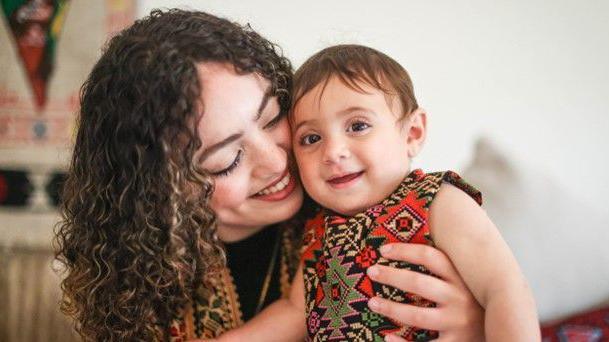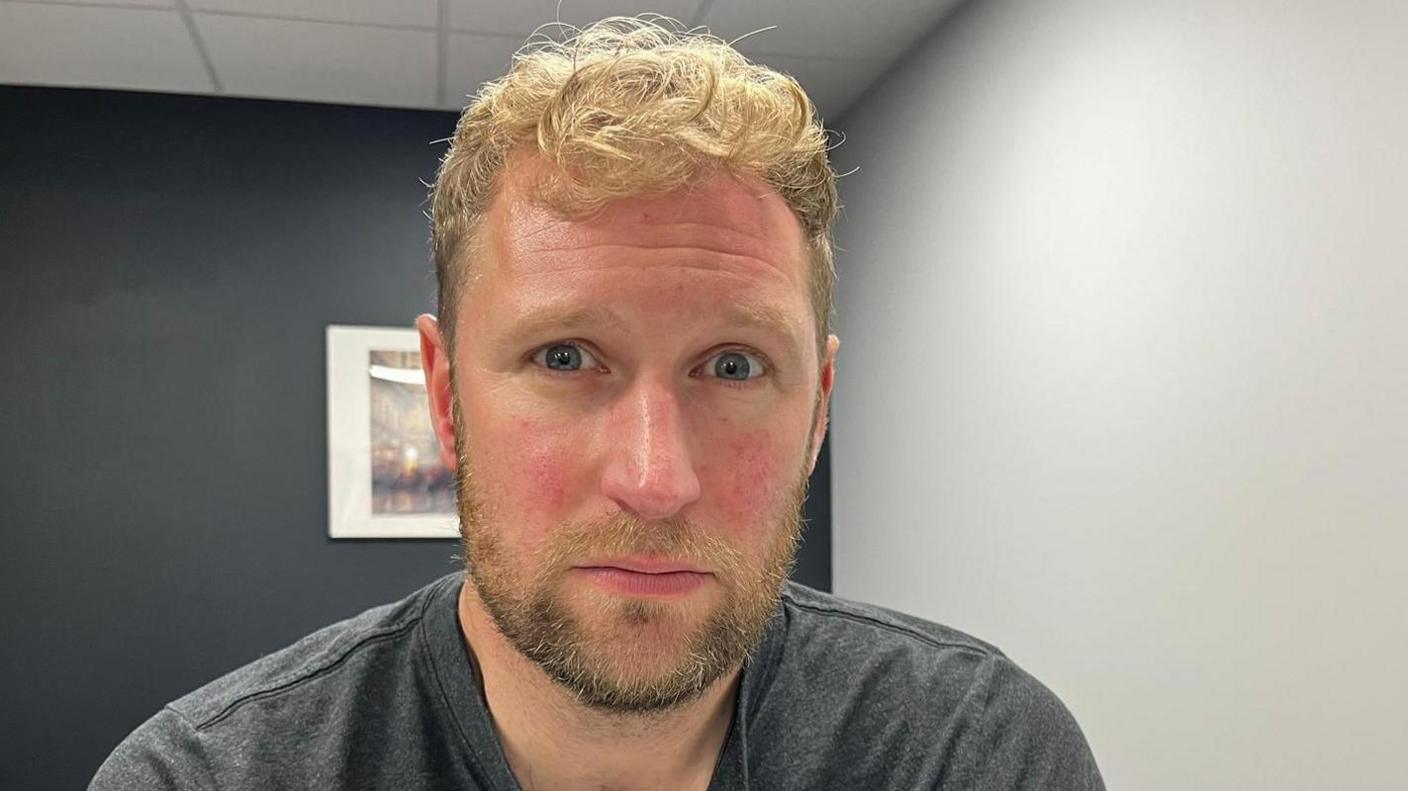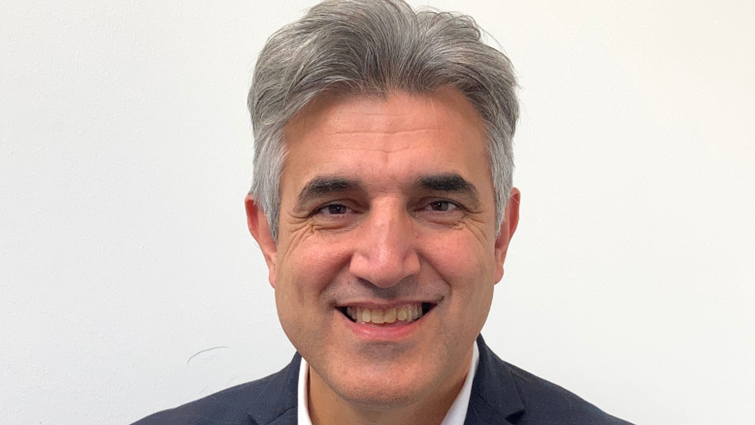Palestinian refugee to challenge family reunion bid rejection

Hadil Louz and her daughter Laila live in Broughty Ferry
- Published
A Palestinian refugee is taking the Home Office to court to challenge its refusal to let her parents and siblings join her in Scotland.
Hadil Louz, 32, lives in Broughty Ferry with her husband Ibrahim and eight-month-old daughter Laila.
She has been trying to reunite with her parents and four siblings and earlier this year applied to the Home Office for permission to allow them to join her in the UK.
But the Home Office rejected the application and said the family had not demonstrated “circumstances which are so compelling as to make them exceptional”.
Ms Louz is now appealing against that decision in the Scottish courts.
Campaigners are also calling for the introduction of a family reunification scheme for Palestinians, similar to those which were previously introduced for people fleeing Afghanistan and the war in Ukraine.
Middle East conflict: How will it end?
- Published8 October 2024
MPs and peers call for Gaza visa scheme
- Published12 March 2024
British-Palestinians call for family visa scheme
- Published15 December 2023
Ms Louz, who has been in the UK since 2018, is studying at St Andrews University as part of a PHD scholarship programme.
She currently has protection status as a refugee in the UK but plans to apply for indefinite leave to remain next year, which would make her status permanent if successful.
She told BBC Scotland News that she came from “a normal family, living their lives, working and having a simple life in Gaza.
“My brothers and sisters were studying at university or high school. They had a peaceful life even if it was interrupted by war.”
The attack on Israel by Hamas on 7 October has been followed by a year of conflict.
Earlier this year Ms Louz raised £40,000 on the GoFundMe platform to pay for four members of her family to be evacuated from Gaza through the Rafah crossing to Egypt.
'I am the only one that can help them'
Her parents are currently in the UAE, where her father is receiving humanitarian treatment for lymphoma cancer, provided by the state. He can remain there while receiving treatment, but may need to return to Egypt when this ends.
Five of her siblings are currently living as undocumented immigrants in Egypt and her other two sisters are in the Jabalia refugee camp in Gaza because she did not have enough funds to secure their passage to Egypt.
The Home Office application only applies to her four unmarried siblings in Egypt.
Ms Louz said: “The only thing I was able to do was to try and find a way to bring them to safety, so that was my priority. They are all dependent on me, I am the only one that can help them.
“Safety is to be surrounded by your family, it’s not to be safe from missiles and bombardments, that’s not the only meaning of safety.
“Being deprived of the right of being surrounded by my family, safe and healthy, is really difficult.”
Earlier this year she applied to the Home Office for what is known as family reunification protection, in an effort to enable her parents and siblings to join her in the UK.
This scheme applies to a partner or dependent child and - in most cases - siblings, the parents of adult children and extended family are not eligible.
However, they may also be granted refugee status if they have "exceptional circumstances", according to the Home Office.

Andy Sirel criticised the conduct of the Home Office
Lawyer Andy Sirel, from human rights law firm JustRightScotland, said he thought the way the Home Office conducted themselves with the family was “unfair and at times unlawful”.
He said: “They advised her (Ms Louz) that her family’s circumstances are not exceptional enough and that the suffering they have experienced in Gaza is not above the level of other Palestinians in Gaza. Not only is that not a lawful test, it’s inhumane.”
The Scottish Refugee Council is calling for the introduction of a family reunification scheme for Palestinians, similar to that introduced after the Taliban takeover of Afghanistan in 2021 and the outbreak of war in Ukraine in 2022.
The Afghan Citizens Resettlement Scheme allows those who were evacuated to the UK to bring over parents and siblings in “exceptional circumstances”.
The Ukrainian Family Scheme, which closed to new applicants earlier this year, also allowed eligible Ukrainian nationals to join family members in the UK for up to three years.

Sabir Zazai is the chair of the Scottish Refugee Council
Sabir Zazai, the chair of the Scottish Refugee Council, said the UK government had the opportunity to introduce a family scheme and expand the definition of family.
“In many cultures family is much wider than just spouses and children,” he said.
“I’m from Afghanistan. In my culture looking after my family, my father, my mother and sisters and brothers, is part of my values.
“We believe that when people are forced to flee their homes, when their lives are shattered, it takes all parts of society to work together to help them rebuild their lives in safety and dignity.
"Refugee protection is not about politics, it's about common human decency.”
The Home Office said it had a long-standing policy of not commenting on individual cases.